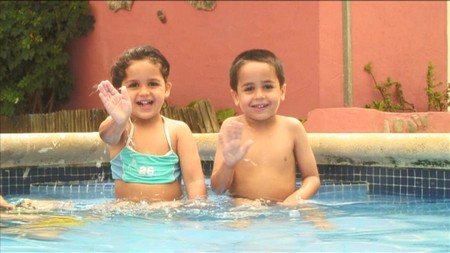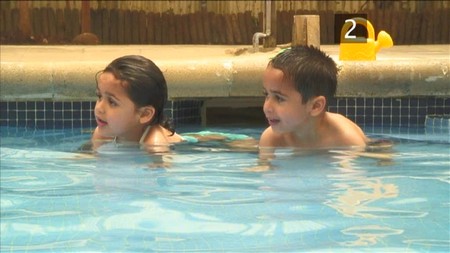One of the most confidence-building skills you can teach your child is the ability to swim. Children who know how to swim overcome one of life’s most gripping fears: the fear of water. A well-maintained pool is a great place to practice and build this essential skill. If your pool needs updates to create a safe and inviting environment, consider Pool Reconstruction Mobile AL for expert services that ensure your pool is perfect for teaching, playing, and relaxing. If you need a new pool, then make sure to contact pool builders Geelong. Adults who don’t know how to swim often are terrified to be out on boats or even to fly over water. They may panic every time they see a child or animal near or in a swimming pool. Not knowing how to swim can be emotionally crippling and socially limiting, but with the right resources, everyone can learn this life-saving skill.
In learning to swim, your child will not only overcome a major fear, but he or she will master a new skill and enjoy a new sense of physical coordination. Your child will learn, in the process, that fears can be faced, new skills can be acquired, and new levels of independence are possible. Your child will also learn that water safety techniques can prevent accidents.

How old should a child be before he or she is given swimming lessons?
Many parents begin to teach their child simple water-movement skills when the child is as young as six-months old. If you opt to begin this early, make certain you work with an instructor who is trained and experienced in teaching infants. The average age to begin swimming lessons is three- to four-years old, when a child has enough large-muscle motor skills to coordinate the basic arm and leg swimming motions. As soon as your child can “flutter kick,” your child can learn to swim!
If, however, your child is a teen and he or she still doesn’t know how to swim, don’t assume it’s too late. Run, don’t walk, to the nearest YMCA or Red Cross swimming course!
How should you choose an instructor?
Make sure the instructor has Water Safety Instructor certification with the Red Cross. This ensures that your child’s instructor not only has studied how to teach swimming, but that he or she has successfully taught swimming.
What should a child know how to do?
Make certain that the instruction includes water safety lessons, especially those related to boating safety and basic lifesaving and resuscitation techniques. Make certain your child sticks with swimming lessons until he or she can float, swim twenty-five yards without stopping, and tread water for five minutes.
Make certain your child learns how to rub out leg cramps, when and how to dive, and how to keep his or her eyes open under water. (Many children seem to finish swimming lessons without acquiring these basic skills, which could make the difference between life and death in lake and boating accidents.)
A child should also be taught that swimming is fun, but not a time for reckless abandon. Children need to be disciplined for disobeying swimming safety rules.
Finally, evaluate your own swimming skills. Isn’t it time you learned to swim if you don’t know how? Isn’t it time to take a refresher course in lifesaving techniques? Have you ever taken a CPR course? Visit this link to get CPR Classes in Colorado Springs. You may also consider checking out ACLS classes in Sunset Valley, Texas.
The wise parent acquires the skills to be a child’s number-one lifeguard whenever the child is near or in the water. To that end never let the child swim alone or unobserved. When your child is in the water, you should be watching from solid footing. When you are near water, bear in mind that water becomes a temptation to a child that enjoys swimming. Watch your child like a hawk.

Diedre, a mother of a two-year-old, went into the house to take a phone call. She came within seconds of losing her son, who had been playing with a ball twenty feet away from their swimming pool. When the ball rolled into the pool, Jeremy followed and fell in. Quickly performed CPR techniques made the difference between life and death.
Knowing how to swim is an important skill for children. It’s an ability that builds confidence and self-esteem, and it can save your child’s life.